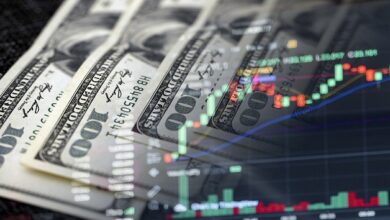Is TikTok different in China? Here's what to know


(NEW YORK) — The push in Washington, D.C., for a potential TikTok ban has drawn mounting scrutiny toward the app over data privacy risks tied to Chinese-owned parent company ByteDance.
In making their case, some critics point to an allegedly tamer version of the app in China, suggesting that ByteDance unleashed a more potent product in the U.S. to hook consumers and vacuum up their data.
Experts who spoke to ABC News, however, downplayed the content-related differences between TikTok and its Chinese counterpart, Douyin, saying the distinctions largely owe to stiff regulations in China centered on youth social media use and political dissent.
The differences between the two apps highlight a comparatively permissive legal environment for social media in the U.S., protecting free expression but also leaving some users — especially young ones — vulnerable to addictive behavior, the experts said.
TikTok did not immediately respond to ABC News’ request for comment. In response to a previous request, TikTok condemned the push for a possible U.S. ban as an infringement on the right to express oneself freely.
“This legislation has a predetermined outcome: a total ban of TikTok in the United States. The government is attempting to strip 170 million Americans of their Constitutional right to free expression. This will damage millions of businesses, deny artists an audience and destroy the livelihoods of countless creators across the country,” a TikTok spokesperson said.
TikTok has faced growing scrutiny over fears that user data could fall into the possession of the Chinese government and the app could be weaponized by China to spread misinformation.
There is little evidence that TikTok has shared U.S. user data with the Chinese government or that the Chinese government has asked the app to do so, cybersecurity experts previously told ABC News.
The version of Douyin used by Chinese adults resembles U.S.-based TikTok, except for some propaganda in favor of the Chinese Communist Party and a lack of alternative viewpoints on hot-button topics, said Kaiser Kuo, the host of “Sinica Podcast,” a U.S.-based podcast on current affairs in China.
“It’s essentially the same stuff,” Kuo told ABC News. “It’s shredding guitarists and funny skits. People showing off the material accouterments of life. People doing clever recipes.”
“It’s people doing dance moves or unboxing or whatever the hell you find on TikTok here you find there, except that it’s censored,” Kuo added.
More noticeable differences between TikTok and Douyin arise when the respective apps are looked at through the lens of young users, some experts said. In the U.S., children experience the same version of TikTok as adults, while children in China see a modified version of Douyin that includes more educational content, they said.
In recent years, China has cracked down on internet use among children. In 2021, the Chinese government enacted a law calling for “the creation and broadcast of online content conducive to the healthy growth of minors.”
That same year, Douyin imposed a 40-minute daily limit for users under 14. Last year, Chinese regulators introduced a rule that would limit children under age 18 to two hours of smartphone screen time each day.
“There are very different laws about how companies in China can target children,” Aynne Kokas, a professor of media studies at the University of Virginia and author of Trafficking Data: How China is Winning the Battle for Digital Sovereignty, told ABC News.
“The U.S. regulatory environment is highly permissive and allows for profoundly addictive apps to emerge,” Kokas added.
Due to comparatively strict data privacy regulations in China, ByteDance accesses less user data from Douyin than from TikTok, Kokas said. However, she added, Chinese privacy protections limiting corporate conduct do not bar the government from accessing a wealth of data.
“That’s a really important caveat,” Kokas said.
While Congress has yet to regulate youth social media use, lawmakers in some states have begun to push for reforms. In June, Connecticut amended its data privacy law to mandate online platforms undertake child safety assessments and assist young users in staying away from damaging posts. Legislators in a handful of states have followed suit with similar proposals.
Mark Jia, a professor of Law at Georgetown University Law Center, pointed out “substantial similarities” between TikTok and Douyin overall, except for some differences tied to e-commerce and search functions.
But, he added, a prevalence of educational content on the youth version of TikTok likely stems from strict regulations and demand for such videos among children preparing for high-stakes, competitive exams.
The content on the children’s version of Douyin results from “top-down pressure from authorities, as well as bottom-up demand from its users,” Jia said.
While acknowledging similarities between TikTok and Douyin, experts who spoke to ABC News differed over the threat to U.S. security posed by TikTok.
Kokas, of the University of Virginia, said dependence upon TikTok for U.S. economic activity and political dialogue could end up “fundamentally destabilizing.” By contrast, Kuo, of the “Sinica Podcast,” dismissed the backlash against TikTok as a “moral panic.”
Copyright © 2024, ABC Audio. All rights reserved.






